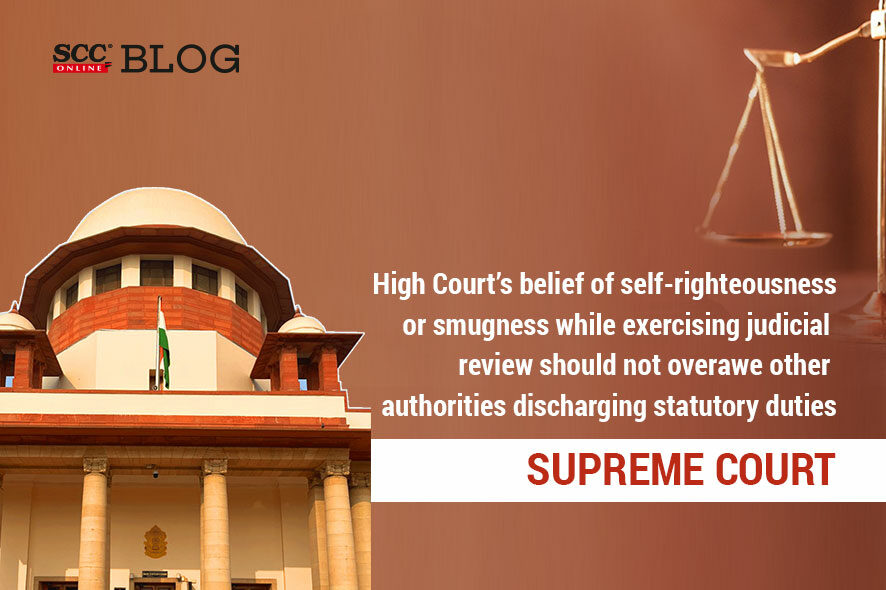Supreme Court: The present batch of Special Leave Petitions challenge the Kerala High Court’s refusal to entertain application against issuance of summons by the Trial Court for offences under Sections 120-B, 406, 423 read with 34 of IPC for illegal alienation of certain immoveable properties of the Church, also rejected by the Sessions Court, the Division Bench of Bela M. Trivedi and Dinesh Maheshwari, JJ. refused to interfere with the findings of three Courts below. The Court quashed and set aside the subsequent orders passed by the High Court and specifically commented on the High Court’s unwarranted judicial activism overawing the other authorities discharging their statutory functions.
The present matter started with allegations of alienating certain immoveable properties of the Church by the Archbishop. A complaint was filed under Sections 190 and 200 of Criminal Procedure Code, 1973 (‘CrPC’) alleging commission of offences punishable under Sections 120-B, 406, 409, 418, 420, 423, 465, 467, 468 r/w 34 of IPC. The Trial Court dismissed the complaint under Section 203 of CrPC for offences under Sections 409, 418, 420, 465, 467 and 468 of IPC and issued summons against the accused for the offences under Sections 120-B, 406, 423 read with 34 of IPC. The complainant had also filed five similar complaints against the Archbishop and others in which the Trial Court issued summons by passing separate orders.
Aggrieved by the Trial Court’s order dated 2-4-2019, the Archbishop preferred Criminal Revision Application before the Sessions Court, which was also dismissed. The Archbishop challenged the same before the High Court under Section 482 of CrPC. The High Court dismissed all the seven Criminal Miscellaneous Cases vide order dated 12-8-2021, posted the matters for compliance report, and then gave further directions by passing various subsequent orders. Present appeals challenge the High Court’s order.
Regarding application for maintainability of dismissal of complaint filed by the respondent before JMFC Court, the Bench noted that the complainant first initiated a complaint before JMFC Court seeking direction for police to investigate under Section 156(3) and 202 of CrPC, which was not prosecuted further and thus, dismissed. However, the Trial Court had already taken cognizance by issuing summons before the dismissal of the previous complaint. The Court referred to the definition of ‘taking cognizance’ as interpreted in the case of Chief Enforcement Officer v. Videocon International Ltd., (2008) 2 SCC 492 connoting ‘to take notice of judicially’. The Court also referred to the distinction between provisions under Section 156(3) and Section 202(1) of CrPC discussed in the case of Ramdev Food Products (P) Ltd. v. State of Gujarat, (2015) 6 SCC 439.
The Court observed that mere non-disclosure of facts in the previous complaint would not be grounds to set aside summons issued by the Trial Court based on prima facie allegations taking cognizance of not all but specific offences, which shows application of mind.
Regarding non-maintainability of second complaint on the same set of facts against the same accused, the Court relied on Pramatha Nath Talukdar v. Saroj Ranjan Sarkar, 1962 Supp (2) SCR 297 wherein it was held that “a fresh complaint could be entertained after the dismissal of previous complaint under Section 203 of CrPC when there was manifest error or manifest miscarriage of justice or when fresh evidence was forthcoming. An order of dismissal under Section 203 of CrPC is no bar to the entertainment of a second complaint on the same facts.” Hence, the Court rejected the argument of Trial Court committing any error in entertaining complaints while the previous complaint was pending before another Court, which was eventually dismissed without taking cognizance.
The Court refused to interfere with the findings of the three Courts (Trial Court, Sessions Court and High Court) regarding involvement of the Archbishop in the alleged offences. The Court commented that “Just as it is necessary to curtail vexatious and frivolous complaints against innocent persons, it is equally essential to punish the guilty after conducting a fair trial.” The Court did not find any illegality or infirmity in the orders passed by the Trial Court issuing summons against the Archbishop for the alleged offences.
As regards the High Court’s order, the Court tagged the same as prima facie observations and said that no finality could be attached to the said observations. The Court directed the Trial Court to decide the complaints against Archbishop and others in accordance with law.
Referring to the limited jurisdiction under Article 136 of the Constitution of India, and in the absence of any other and further material on record to support the petitioner’s grievances, the court refused to entertain the SLPs filed by the petitioners.
The Court specifically pointed at the subsequent orders passed by the High Court in the present matter and observed that “the High Court in its overzealous approach had travelled not only beyond the scope and ambit of Section 482 CrPC and of Article 226 of the Constitution, but had crossed all the boundaries of judicial activism and judicial restraint by passing such orders under the guise of doing real and substantial justice.”
The Court commented that the High Court’s belief of self-righteousness or smugness while exercising judicial review should not overawe the other authorities discharging their statutory functions. The Court further added that “We may not have to remind the High Courts that judicial restraint is a virtue, and the predilections of individual judges, howsoever well intentioned, cannot be permitted to be operated in utter disregard of the well-recognized judicial principles governing uniform application of law. Unwarranted judicial activism may cause uncertainty or confusion not only in the mind of the authorities but also in the mind of the litigants.” Thus, the Court quashed and set aside all the subsequent orders passed by the High Court after the passing of the impugned order dated 12-8-2021.
[Cardinal Mar George Alencherry v State of Kerala, 2023 SCC OnLine SC 286, judgment dated 17-3-2023]
*Judgment authored by: Justice Bela M. Trivedi.







